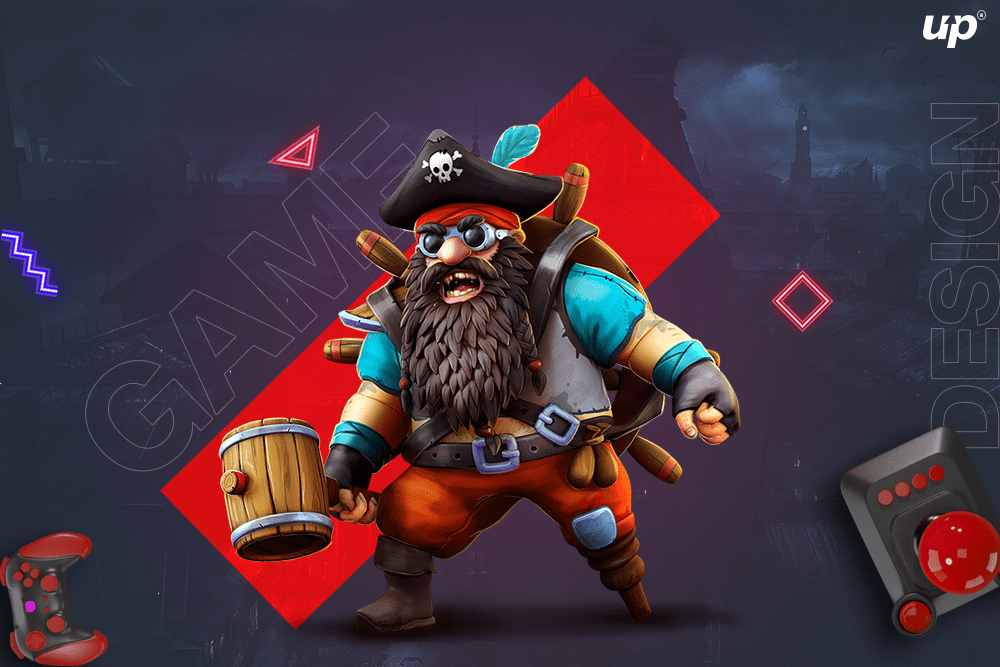Every game development company strives to produce fascinating and unforgettable experiences in the world of gaming. The rivalry in the gaming industry is fiercer than it has ever been because of the advancement of technology and the growth of mobile app development services. It’s crucial to use efficient game design strategies if you want to stand out from the competition and create a lasting impact on players. We will examine some helpful hints and techniques in this blog article to assist game developers in creating captivating and lasting experiences.
What is Game Design?
The process of conceptualizing, planning, and developing a game’s rules, mechanics, and overall structure is referred to as game design. The design and incorporation of numerous components, including gameplay, narrative, graphics, music, user interface, and player experience, are required. The fundamental gameplay elements, mechanics, and advancement schemes are conceptualized and put into action by game designers.
Both the artistic and technical facets of game production are covered by game design. It entails developing captivating, immersive experiences that draw gamers in and keep them amused throughout their gaming trip. To realize their idea, game designers frequently collaborate with programmers, illustrators, sound designers, and other experts.
The aim of game design is to create interactive experiences that elicit feelings, present challenges, and give players a sense of accomplishment or fulfilment. It entails designing user interfaces, levels, characters, and game mechanics. Game designers must take into account elements like balance, pacing, player motivations, and the general flow of the game.
Game design encompasses not only classic video games but also card games, board games, mobile games, and other interactive experiences. To develop games that appeal to the target audience, one must have a thorough understanding of player psychology, market trends, and technology advancements.
In general, game design is a multidisciplinary discipline that blends inventiveness, problem-solving skills, and technical know-how to produce engaging and pleasurable gaming experiences. It is an essential component of game development, directing the creation of a game from conception to completion and forming the overall vision.
The pandemic has shaped events—today, events are a seamless blend of in-person and virtual experiences. Executing a successful hybrid event is challenging and requires extensive planning and strategy to get it right. Harnessing the power of hybrid event technology is crucial for businesses aiming to provide immersive experiences for attendees wherever they are in the world.
If you do not have the in-house expertise to plan and execute a hybrid event, consider hiring an experienced event company in London to do the heavy lifting. However, if you decide to run the event yourself, you’ll need to select a suitable hybrid event platform. In this article, we will explore the best tools and platforms to use for a seamless hybrid event experience. Cutting-Edge Hybrid Event Technology Essential Tools and Platforms for a Flawless Experience
Understand Your Target Audience:
Understanding your target audience is essential before starting the game development process. Decide whether your game is aimed at hardcore gamers, casual gamers, or a certain niche. Make a comprehensive investigation to learn about their preferences, playing styles, and expectations. With this knowledge, you’ll be able to modify the design of your game to better suit the requirements and preferences of your intended audience, creating a more engaging experience.
Focus on Gameplay:
The gameplay is the lifeblood of any great game. Players will quickly lose interest if the gameplay isn’t engaging, regardless of the game’s amazing aesthetics or intricate storylines. Create responsive mechanics, clear controls, and tasks that are challenging but fair. Maintain basic game concepts that are nonetheless complex enough to provide a sense of mastery and advancement. To provide a seamless and enjoyable gameplay experience, repeatedly playtest and refine your game.
Embrace Storytelling:
Even though engaging gameplay is essential, adding a fascinating story can significantly improve the player experience. Create a compelling narrative that draws players into the game’s universe and inspires a sense of connection. Create compelling characters, surprising plot twists, and decisions that have an impact on the game’s outcome. To achieve a smooth union, keep gaming and storyline components in check.
Prioritise User Experience (UX):
User experience is crucial for maintaining player interest. Make sure the UI of your game is simple and easy to use. Take into account features like menu design, in-game tutorials, and navigation to create a seamless learning curve. To ensure a seamless experience, reduce disruptions and optimize load times. Implement player feedback mechanisms and pay close attention to community feedback to enhance the user experience as a whole.
Leverage Social and Multiplayer Features:
Your game’s lifetime and replay value can be increased by adding social and multiplayer elements. Use leaderboards, achievements, and multiplayer modes to encourage friendly competition among players. Include social media sharing features so that users may connect and tell their peers about their gaming experiences. Through word-of-mouth advertising, this social component not only increases engagement but also broadens the game’s audience.
Polish and Polish Again:
A memorable gaming experience can be significantly influenced by attention to detail. Playtest and polish your game frequently to get rid of problems, boost performance, and improve the visual and aural components. Improve the music, sound effects, and images to produce an immersive environment. To create a polished and expert experience, pay close attention to little elements like animations, particle effects, and UI feedback.
Embrace Player Feedback:
Your gamers are a priceless resource for suggestions and ideas. Encourage people to share their opinions via forums, social media, or in-game surveys. Actively hear their feedback, complaints, and issues, then make the required changes to the game. Participating the player base in game creation not only results in a better game but also cultivates a fanatical and active player base.
What Crucial Components Go Into Game Design?
Clear objectives, meaningful choices, balanced gameplay, well-designed mechanics, useful feedback, engaging narrative, a suitable difficulty curve, and a well-polished user interface all contribute to player engagement.
How May One Get Expertise in Game Design?
- Studying pertinent classes, tutorials, and books will help you build a thorough understanding of game design and development.
- Create a portfolio of your own video game creations to demonstrate your talent and imagination.
- Join groups and forums for game development to connect with professionals in the field and learn more.
- To network with business leaders and discover the newest trends, think about going to game development companies and events.
- Software and technologies used in game production, such as Unity or Unreal Engine, should be learned and mastered.
- To improve your credentials, think about earning a degree or certification in game development or a related profession.
- Start out simply by making straightforward games or taking part in game jams to get experience and sharpen your talents.
- To gain practical experience and learn from seasoned professionals, submit an application for internships or entry-level roles at game development studios.
- Work on projects together with other aspiring game developers to share knowledge and strengthen your portfolio.
- Continue to expand your knowledge and abilities by keeping up with industry news, reading blogs about game development, and experimenting with new tools and methods.
Conclusion:
Implementing these strategies as a game development company or mobile app development service provider will not only help you produce outstanding games but also solidify your position as one of the best game development companies in the business. Embrace the skill of game creation to realize your potential to create memorable experiences that last with players.
A blend of imaginative design, technical know-how, and player-focus development is necessary to create captivating and memorable gaming experiences. You can make games that stand out and connect with players by being aware of your target demographic, concentrating on gameplay, including storytelling aspects, emphasizing user experience, utilizing social and multiplayer features, polishing every component, and welcoming player input. Following these pointers and advice as the top game production firm will help you make remarkable games that have a lasting impression on your gamers and build your name in the cutthroat gaming market.











